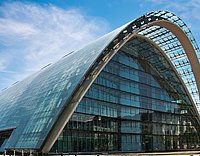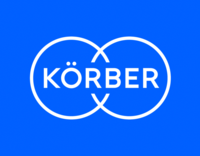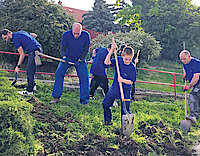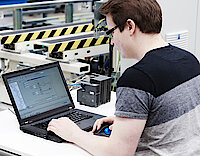
Such huge amounts of cheese require a high-tech warehouse that operates flexibly and efficiently. However, time had not been kind to the company’s existing technology. In particular, the capacity of the warehouse where cheese ripens undisturbed, as well as the conveying systems in the dispatch area, were increasingly approaching their limits. In order to prepare for further growth while safeguarding its future competitiveness, Berglandmilch decided to modernize. And that’s where Körber’s expertise came into play: The Business United Supply Chain Automation specializes in complex industry and logistics facilities, distribution centers, and warehouses, among other things, and has supported numerous modernization projects for companies in the automotive industry and in the areas of mechanical engineering, pharmaceuticals, e-commerce, and food.















![[Translate to English:] [Translate to English:]](/fileadmin/_processed_/3/1/csm_Essay-2_9e601d3314.png)
![[Translate to English:] [Translate to English:]](/fileadmin/_processed_/0/f/csm_KOERBER_Robots_01_cd437f3512.jpg)

